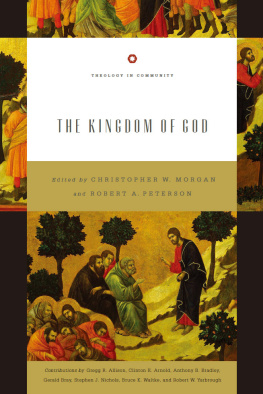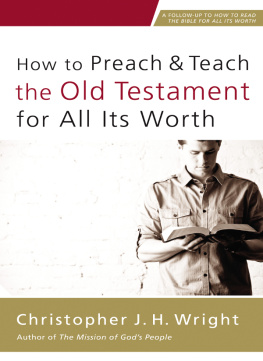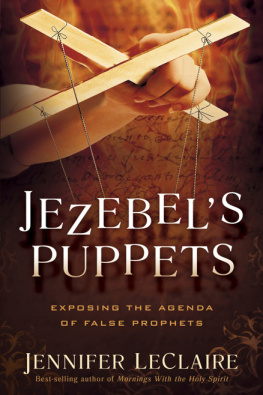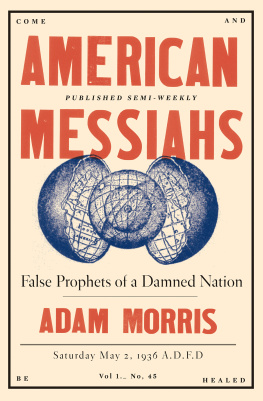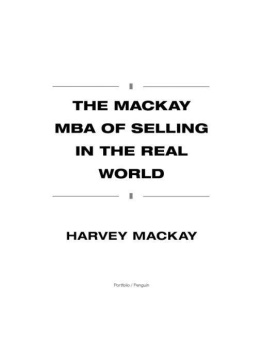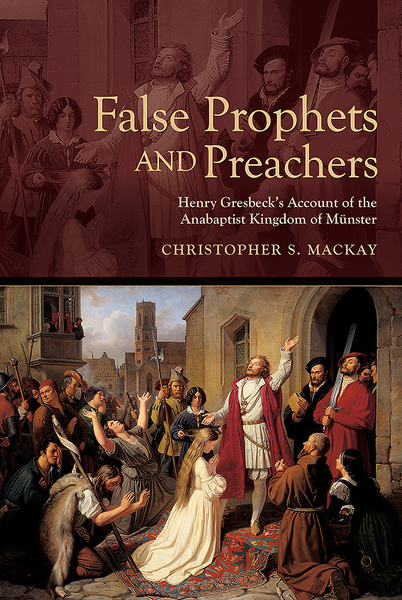Barbara B. Diefendorf
Scott H. Hendrix
Mary B. McKinley
Raymond A. Mentzer
Robert V. Schnucker
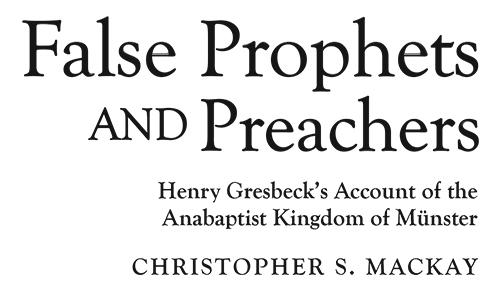

Early Modern Studies 18
Truman State University Press
Kirksville, Missouri
Copyright 2016 Truman State University Press, Kirksville, Missouri, 63501
All rights reserved
tsup.truman.edu
Cover art: Johann Karl Ulrich Bhr, Jan van Leiden tauft ein Mdchen. Oil on canvas, 1840. Westphalian State Museum of Art and Cultural History.
Cover design: Teresa Wheeler
The Library of Congress has cataloged the print edition as follows:
Library of Congress Cataloging-in-Publication Data
Names: Gresbeck, Heinrich, active 1540. | Mackay, Christopher S., 1962
Title: False prophets and preachers : Henry Gresbecks account of the
Anabaptist kingdom of Mnster / [translated and annotated by] Christopher
Mackay.
Other titles: Berichte der Augenzeugen ber das mnsterische
Wiedertuferreich. English
Description: Kirksville, Missouri : Truman State University Press, 2016. |
Series: Early modern studies ; 18 | Includes bibliographical references.
Identifiers: LCCN 2015042883 (print) | LCCN 2016006745 (ebook) | ISBN
9781612481418 (library binding : alkaline paper) | ISBN 9781612481425 ()
Subjects: LCSH: Gresbeck, Heinrich, active 1540. |
AnabaptistsGermanyMnster in WestfalenHistory16th century. |
Mnster in Westfalen (Germany)Church history16th century. | Mnster
in Westfalen (Germany)History16th century. |
GermanyHistory1517-1648.
Classification: LCC BX4933.G3 G7413 2016 (print) | LCC BX4933.G3 (ebook) |
DDC 943/.5614031dc23
LC record available at http://lccn.loc.gov/2015042883
No part of this work may be reproduced or transmitted in any format by any means without written permission from the publisher.
The paper in this publication meets or exceeds the minimum requirements of the American National Standard for Information SciencesPermanence of Paper for Printed Library Materials, ANSI Z39.481992.
Because of display limitations of e-readers, some special charcters (e.g., Greek or Hebrew letters, cedillas, characters in Eastern European languages, accents or other diacritical marks) may not display properly in the e-book version of this work.
Sequential numbers in curly brackets {} in the body of the text refer to page numbers in the print edition; citations appeared as footnotes in the print edition.
Kelliae carissimae ac de me optime merenti,
cuius ocelli, siquid desit meis, supplent!
Contents
The Radical Reformation in Mnster
Late one night in late May 1535, five men warily snuck out of the besieged city of Mnster. One man became separated from the group. He wandered in the dark, trying to avoid the enemy troops in the trenches, but eventually decided to give himself up and hope for the best. This man, Henry Gresbeck, was to play a major part in the recapture of the city from the Anabaptists. He would also write the only eyewitness account of what had gone on in the city for the preceding fifteen months. Gresbeck addressed his account to the prince-bishop, possibly to explain his role in the Anabaptist rebellion and his importance to the eventual capture of the city. Gresbecks original manuscript seems to have disappeared into the prince-bishops archive (eventually turning up in the archives in Cologne). His account had no effect on the sixteenth-century treatments of the events in Mnster; it was only rediscovered in the mid-nineteenth century. That account is here translated into English for the first time.
The best-known surviving source for the events in Mnster was written a generation later by the schoolmaster Herman von Kerssenbrock, who was a boy at the time of the Anabaptist regime and fled the city. He wrote his history in Latin a generation later (in the 1560s), partly using archival information but mostly by borrowing from earlier historians. Kerssenbrocks magisterial work eclipsed not only the influence of earlier historians, but also the knowledge of Gresbecks eyewitness account.
It was only with the 1853 publication of Gresbecks account in a collection of documents edited by C. A. Cornelius that his involvement in the {2} fall of the city came to be generally known. Cornelius based his edition of the Low German on two derivative manuscripts. One was a heavily edited copy of Gresbecks account from the ducal library in Darmstadt and the other a copy that was edited and converted into High German from a library in Meiningen. Cornelius was unable to consult another manuscript of Gresbeck that was located in Cologne. I have used a copy of the original manuscript that Gresbeck submitted to the prince-bishop to prepare a much better edition of the original text, and that text is the basis of the following translation. The Cologne manuscript appears to be the original manuscript Gresbeck had submitted to the prince-bishop. The translation presented in this volume is based on that early copy.
The narrative presented in Gresbecks retrospective account is not without its own difficulties, but not only does it give us the perspective of a common man on very unusual events, it is also the only account written by a man who actually witnessed these events with his own eyes. To judge by his account, Gresbeck was a keen observer of events around him, and he presents his story with verve and humor.
1. The Mnster Rebellion
The Anabaptist regime in Mnster was brieffrom February 1534 to June 1535and the fact that the city was under siege resulted from one of the most remarkable events of the early Reformation in Germany. In the years before 1533, the city of Mnster was gripped with reforming fervor, which was adopted in part by the dignitaries of the local city council. The city was under the control, however, of the prince-bishop of Mnster, who held both religious and secular powers. The city council had extorted wide-ranging privileges that amounted to autonomy from the newly appointed Bishop Francis of Waldeck in 1533, but these would prove to be short-lived. The Reformers were intent on going much further in their religious innovations {3} than the Lutheran-inspired members of the city council were willing to go. One particularly noteworthy element in the Reformers beliefs was the rejection of infant baptism. They believed that baptism had to be voluntarily undertaken by responsible adults. Since at that time pretty much everybody would have received baptism as an infant, anyone who underwent a new baptism as an adult was a rebaptizer, or Anabaptist (



